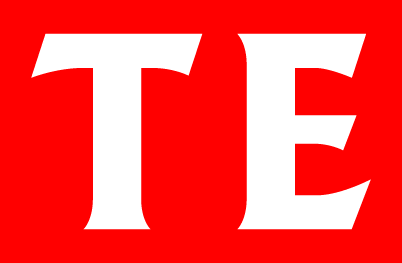
ISSN (e) 1555-7561
(print) 1933-6837
An open-access journal in economic theory
Econometric Society
Acknowledgments
Paper handling
See the page on paper submission for policies on paper submission and publication. The Editor will assign each submitted paper to a Coeditor, who will be responsible for evaluating the paper and ultimately making a decision on it. The Editor may reject a paper without review if it is a poor fit for the journal, or if the outcome is unlikely to be successful (see our editorial standards page). If the paper is longer than necessary, the Editor may also ask an author to resubmit a revision; such requests do not reflect a judgment of the quality of the paper. A Coeditor will typically send a paper to two to three referees (using more referees is discouraged). In the case of Econometrica transfers, one or two of these referees may be from the original submission. Referees may include an Associate Editor of the journal.Submission of revised versions
Authors given the option to revise and resubmit a paper are expected to complete a revision within one year of being notified of the decision. A revised version submitted after one year after the author is notified of the decision will normally be treated as a new submission, though the Coeditor handling the paper has the discretion to treat such a paper as a resubmission. If a paper is returned after two years, there will be no presumption that it will be sent to the original co-editor (especially if he/she has left the board).Accepted papers
Accepted papers will be available on the journal website soon after acceptance and receipt of any cited references that are unpublished and not available in a stable public archive (like one that participates in RePEc, including MPRA). They will be copy-edited and formatted before publication. Papers are published in the order of receipt of the final versions. Through 2016, the order within each issue was also according to the order of receipt of the final versions. From 2017, within each issue papers are ordered by their length. Through June 2009, issues were published quarterly and grouped into yearly volumes for hard-copy printing. From 2010 to 2018, issues were published three times a year, in January, May, and September. Starting in 2019, issues are published four times a year, in January, May, July and November.
The Society has the right to retract a published paper in the event of (i) a breach of the warranties to which the author agrees in the publication agreement, (ii) any substantive errors, or (iii) evidence of scientific misconduct or other fraudulent actions. A committee of the three journal Editors and the current sitting President for the Society will be formed to evaluate and decide the proposed retraction. More information concerning retraction guidelines of the Committee of Publication Ethics can be found here.
Editorial code of conduct
If an Editor or Coeditor has a conflict of interest with an author, they cannot handle the paper and do not have access to either the referee reports or names of referees. Such a conflict of interest exists with the following categories of people:
- Current colleagues and graduate students at the same institution. A person is a "colleague" of a Coeditor if they are (a) a member of the same permanent department, (b) a member of a different department at the same university, or (c) a member of a department the Coeditor is visiting. Cases (b) and (c) exclude people with whom the Coeditor has no collegial interaction.
- Active coauthors. This means coauthors of current papers or papers published less than 5 years ago.
- Students for whom the Coeditor was the main advisor.
- Students the Coeditor advised in a less central way (e.g. thesis committee, letter writer) if the paper is either submitted within 5 years of the person’s graduation, or contains work from the time the person was a student.
- Family members, close personal friends, or others with whom the Coeditor has a close professional relationship, even if not specifically listed above (e.g. thesis advisors, long-standing coauthors, colleagues at a former department).
The Editor and Coeditors cannot submit papers to Theoretical Economics. Sometimes they Coeditor may have a paper under review at the journal when they are appointed. In these cases, they cannot see the names of referees or their correspondence with the handling Coeditor.
Referee reports and cover letters remain in the editorial system and future Coeditors may access them for 6 years; Editors may them for 10 years. Editors and Coeditors treat all reports and cover letters confidentially. The referee names and cover letters are never shared (e.g. with authors, other referees, or Associate Editors). Editors and Coeditors cannot see past submissions or the associated records (e.g. referee assignments) if there is a conflict of interest (e.g. same institution, recent coauthor, recent student) or if they are an author. For papers transferred from Econometrica, the referee name and cover letter are transferred only with the permission of the referee.
 
|
Tweet |
Advanced search
Login
